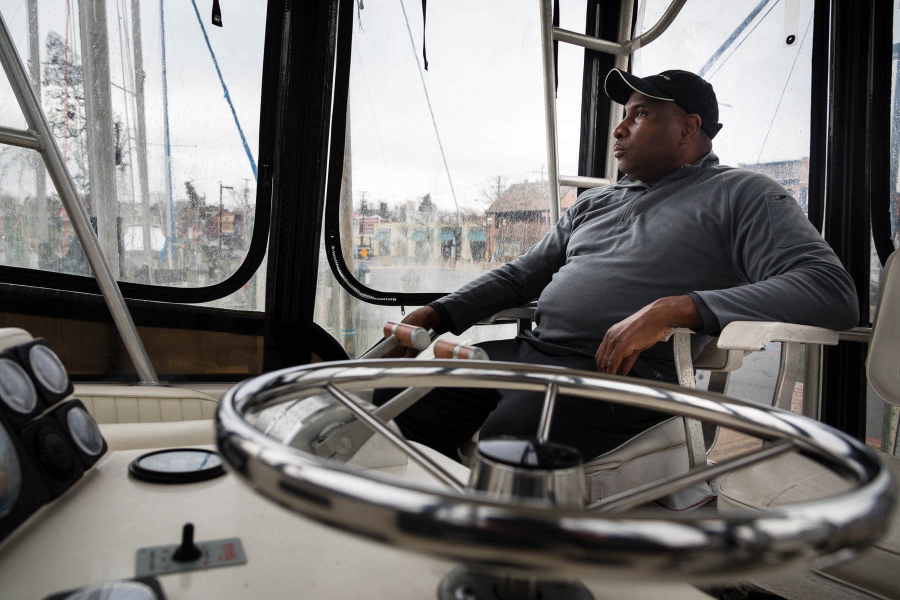Finding the pleasure in boating

Marcus Wooley’s initial experience with the Bay did not begin as a waterman, but rather through family leisure time. Since he could remember, his family has always had a boat, and he describes himself as a “pleasure boater.”
When he first started boating, he did not see African-Americans captaining boats on the Chesapeake. However, he and his brothers were very skilled boaters and Wooley could drive a boat before he had a car driving license. “Whether we were out for two hours or four hours, I could do everything maneuvering a boat at the age of 12. I feel like I’ve just gravitated to the Bay and just love the water.”
An IT professional by trade, Wooley knew from an early age that you needed to make a certain amount of money to afford the lifestyle of sustaining and owning a boat. The first boat he ever bought was a fifty-fifty investment with his father. This boat, purchased from a dentist, was appropriately named The Tooth Fairy.
“When I grew up, the concept of a black watermen making a living on the Bay was not a concept that I understood,” he recalls. “I did not see black watermen. I saw a couple black boat owners—pleasure boat owners—but not maintaining a living as an entrepreneur that worked five to seven days a week on the water. It was not until I became older that I understood there were black watermen on the Chesapeake Bay, a place where I fished all my life.”
However, now Wooley has found himself as one of those entrepreneurs on the Chesapeake Bay. Transitioning out of IT, he started a business in the late 1990s, working as an independent maritime consultant. “I had people I would take fishing and they’d be shocked that I was the captain,” he says. “They would say, ‘We’ve never seen a black captain operating the boat.’”
Wooley also joined Airbnb and advertised his boat as a two-bedroom, one-bathroom floating condo, and began accepting clients, just to test the waters. He has considered other avenues of enterprise on the water including running tours, taking fishermen out and is in the process of obtaining his captain’s license. He sees himself as a 21st century watermen. Wooley says, “The industry has changed, just as much as the environment has changed.”
Learn more about the history of African-Americans on the Chesapeake Bay.

Comments
There are no comments.
Thank you!
Your comment has been received. Before it can be published, the comment will be reviewed by our team to ensure it adheres with our rules of engagement.
Back to recent stories